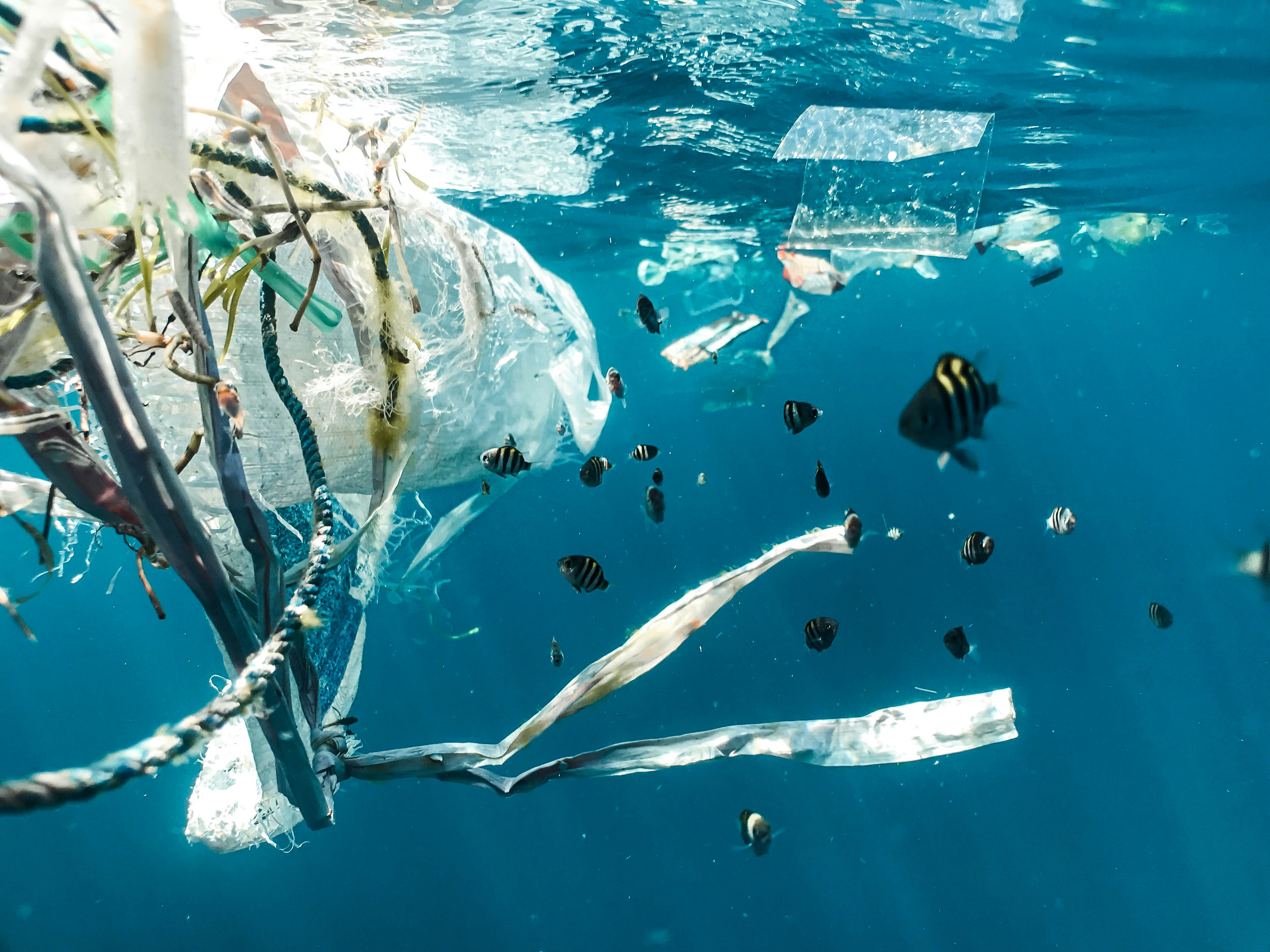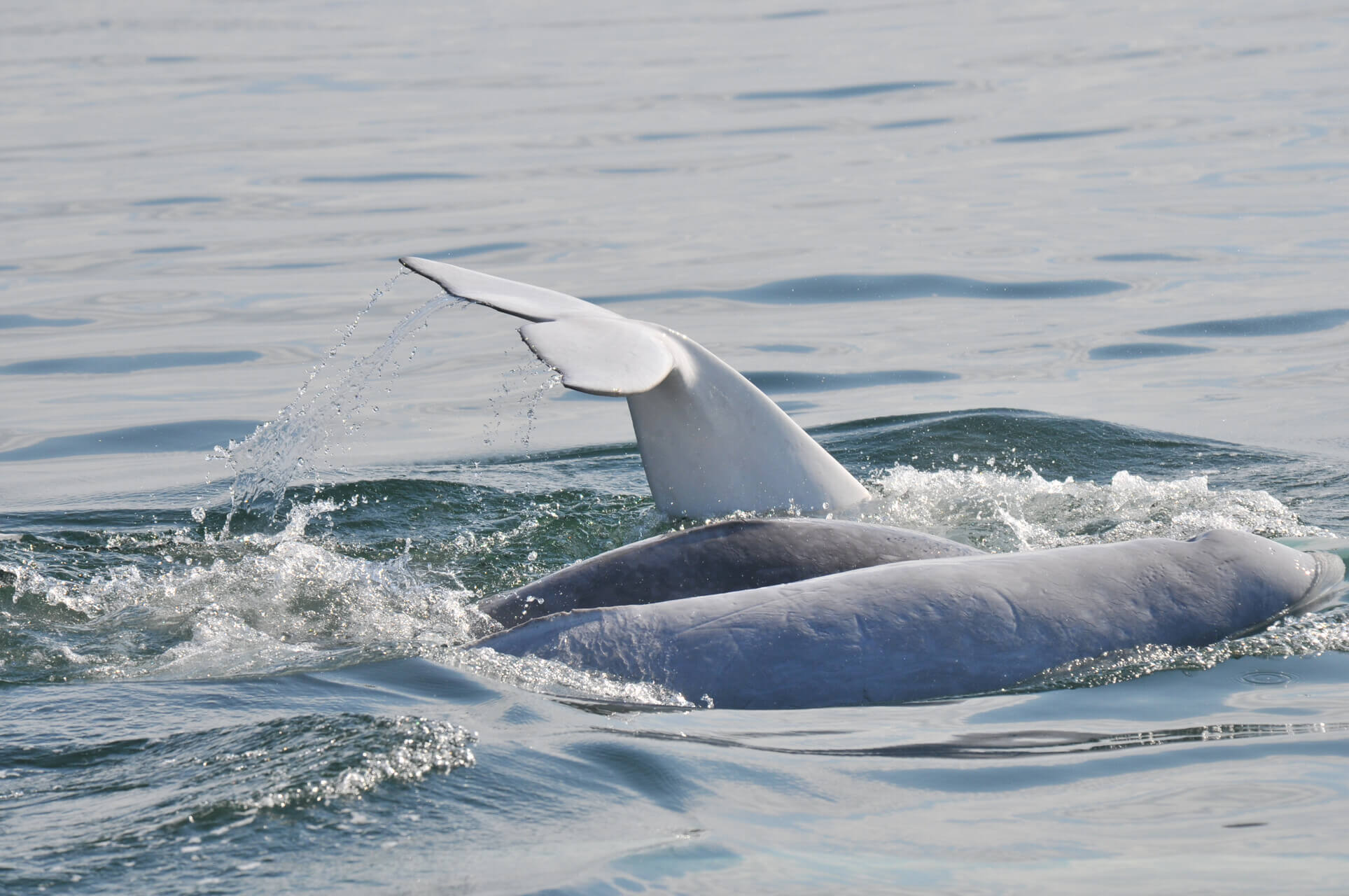As part of St. Lawrence Week, Whales Online offers a glimpse of species that have a special meaning for each of our authors. A memory, a photo, a quote, a story. Every encounter with whales leaves an impression. Today, Josiane Cabana tells the story of her first moment shared with a blue whale .
Encounter with the Big Blue
In discussions between whale lovers, one question inevitable gets asked sooner or later: “Which whale is your favourite?” I always hesitate between the North Atlantic right whale, an endangered species that plies the dark waters and seems to drag its heavy past with it; the indescribably beautiful bowhead whale with its creamy white chin as if it were hand-painted but that I’ll only ever see in books (it inhabits the North Pole); and the giant of the seas, that larger-than-life blue behemoth that glides below the surface stealthily and gracefully, despite its 100 tonnes. Each and every time, after a few seconds of reflection, my heart sways and I make up my mind: the blue!

I encountered my first majestic blue whale nearly 20 years ago, off Portneuf-sur-Mer, in the heart of the St. Lawrence Estuary. Our captain was visibly a man of experience and passionate about the sea, navigation and “his” blue whales. We knew what time we would set out to sea, but not when we would return. I felt like a kid on Christmas Eve, sitting on the bench of the tiny boat, all my senses ready to capture any sign of life that the St. Lawrence had to offer. At the mouth of the Portneuf River, seals were already jumping like salmon; I couldn’t believe my eyes! Then the spouts started shooting up all around us, to the right, straight ahead, to the left… An “all-you-can-eat buffet” of large rorquals! “We’ll start by observing the three large whales to the west, one of which appears to be showing its tail, then we’ll head downstream to see the two blue whales that might be a pair formed for the winter… and lastly, we’ll try to relocate the five or six spouts I saw earlier, alright?” It was obviously more than we could hope for.
After an hour of sailing, filled with optimism, we found ourselves – these little floating humans – literally in the middle of their habitat, watching them live, swim, arch their backs, pierce the surface with their shiny skin, their heads bigger than our boat and their powerful blowholes opening to exhale like a cannon shot after a 20-minute dive, and even opening their jaws to the skies to gulp down their food, revealing their charcoal black baleen… Sometimes the omnipresent silence was broken only by the water lapping at the hull of the Zodiac as we waited for these giants to surface and continue swimming here and there.
It is these moments at sea that I still love more than anything today: the moment you scan the horizon in search of movement on the water, a whitish column in the distance that might betray a whale’s presence several kilometres offshore, the moment when excitement mixes with a kind of unfounded fear with the famous question in one’s mind “but where will it resurface?” Being so gigantic and so discreet at the same time, how can this be!? Then, after several minutes with no sign of life, our patient captain calls it a day: “Well, it seems the big blues have dissolved! Wonder no more why the sea is the colour it is!” The return journey began at sunset, which lent an ochre hue to the waters of the Estuary. Little by little, the glow of the bioluminescent plankton joined the most gorgeous starry sky I had ever seen, and I remained speechless before so many great beauties.
To read the previous texts: St. Lawrence Week
Josiane Cabana serves as Director for the Quebec Marine Mammal Emergency Response Network call centre. When she’s not responding to cases of dead or vulnerable marine mammals, she likes to take the time to educate local residents on the threats faced by these animals. Biologist by training, she has been involved with the GREMM for more than 15 years, and always with the same undying passion!






